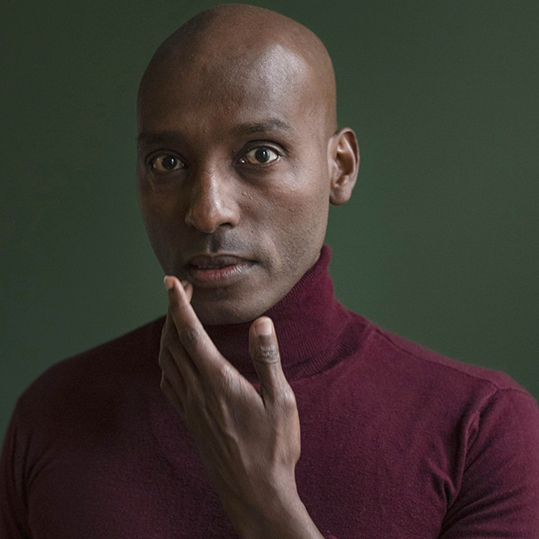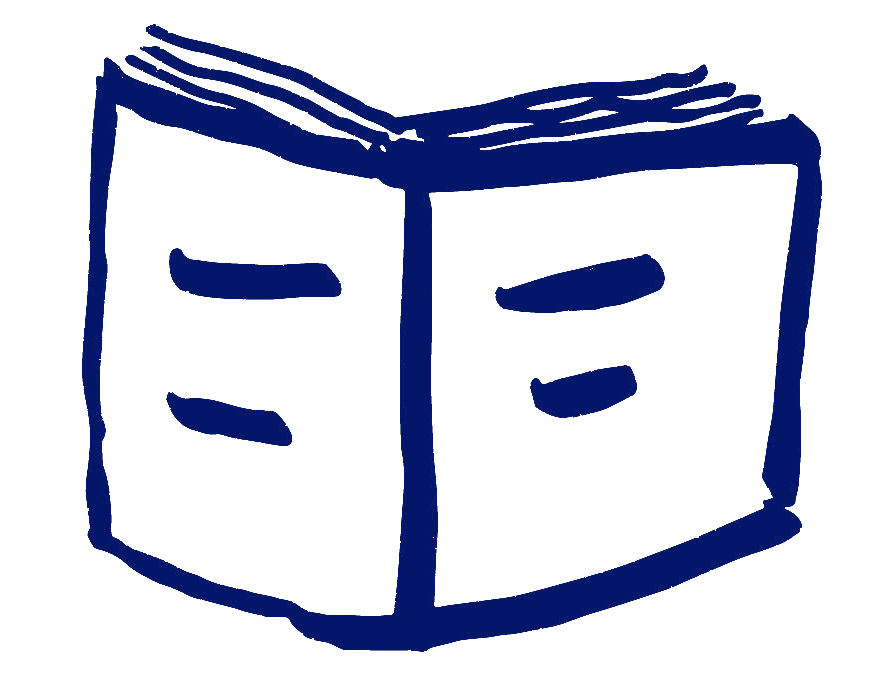
"Addonia's writing is full of energy that engages the whole body. The voice is vivid, alive and real. It has elements of my favourite writers in it; I thought of Albert Camus, Claude Mckay, Junot Diaz and Binyavanga Wainaina while reading it. Brutal and tender in equal measure."Raymond Antrobus
SULAIMAN ADDONIA s a British-Eritrean-Ethiopian novelist who fled Eritrea as a refugee in childhood. He spent his early life in a refugee camp in Sudan following the Om Hajar massacre in 1976, and in his early teens he lived and studied in Jeddah, Saudi Arabia. He arrived in London as an underage unaccompanied refugee without a word of English and went on to earn an MA in Development Studies from SOAS and a BSc in Economics from UCL. His debut novel, The Consequences of Love (Chatto & Windus, 2008), was shortlisted for the Commonwealth Writers' Prize and was translated into more than 20 languages.
His second novel, Silence is My Mother Tongue (Indigo Press, 2019; Graywolf, 2020), was a Finalist for Lambda Literary Awards 2021, Firecracker (CLMP) Awards, the inaugural African Literary Award from The Museum of the African Diaspora (MoAD) in San Francisco, and it was longlisted for 2019 Orwell Prize for Fiction. Addonia's essays appear in LitHub, Granta, Freeman's, New York Times, De Standaard, and Passa Porta. He is a contributor in Tales of Two Planets (Penguin, 2020, edited by John Freeman) and Addis Ababa Noir (Akashic Books, 2020, edited by Maaza Mengiste). Sulaiman Addonia currently lives in Brussels where he founded The Creative Writing Academy for Refugees and Asylum Seekers and the Asmara-Addis Literary Festival (In Exile) (AALFIE), selected in 2022 as one of the top 40 literary festivals in the world. In 2021 he was awarded Belgium's Golden Afro Artistic Awards and in 2022 he was elected as a Fellow of Royal Society of Literature (RSL) .
Sulaiman Addonia's third novel, The Seers, follows the first weeks of a homeless Eritrean refugee in London. Set around a foster home in Kilburn and in the squares of Bloomsbury, where its protagonist Hannah sleeps, the novel grapples with how agency is given to the sexual lives of refugees, insisting that the erotic and intimate side of life is as much a part of someone's story as 'land and nations' are. In a gripping, continuous paragraph, The Seers moves between the present day and the past to explore intergenerational histories, colonial trauma, and the realities of the UK asylum system and its impact on young refugees.
Sulaiman Addonia says in interview in The Guardian "A lot of books coming out in London or the US have become all about subtlety and conformity. The western novel feels like it's in a very calm space; I told my friend, I'm gonna take it back to the rock'n'roll era! I was joking, but I feel The Seers is in conversation with a time when the western novel was really bold."
The Seers is published internationally with:
UK: Prototype, 27 June 2024, with a special edition for independent UK bookshops, and audiobook co-published with Spiracle Editions
US: Coffee House Press, 22 April 2025
Canada: Assembly Press, 18 March 2025
Germany: Orlanda Verlag, March 2025
Netherlands: Uitgeverij Jurgen Maas, 1 September 2024
Extract in LitHub
REVIEWS:
"An incandescent howl of anti-colonial rage and insatiable desire; a powerful and taboo-breaking love letter to a London made of stories, and a scathing indictment of the UK asylum system's ability to break hearts and bodies to pieces again and again." Preti Taneja, award-winning author of We That Are Young and Aftermath
"This book is honestly an amazement. The real fucking deal." Polly Barton, award-winning translator and writer
"A bold exploration of refugee life and desire…As novels go, the pantheon of great opening sentences are invariably reserved for works which are themselves in the canon, but if the gatekeepers are unable to find room for Sulaiman Addonia's The Seers then they could at least make an exception for its first 27 words." BuzzMagazine
"The violence that marks the world's outcasts becomes, in this compelling prose, an ode to the strength to survive. What an intense and passionate book." Stefan Hertmans, award-winning and internationally published Flemish-Belgian author, poet and essayist
"This is an exquisitely brilliant novel. Politically exciting and wild and beautiful. I really love young Hannah, a refugee who uses fucking as a genuinely radical act of seeing and being." Holly Pester, poet and author of I
'In The Seers, Sulaiman Addonia takes us into a world both enchanting and raw, where desires and memories overlap. This innovative prose explores the hallucinatory and all-too-real aspects of an existence on the fringes of society, offering a deeply empathetic look at the struggles and triumphs of people who often remain invisible. The Seers is an ode to the power of identity and desire. It is a story of love, loss and inexhaustible resilience that deserves its place in the contemporary canon." Alara Adilow, award-winning Somali-Dutch poet and author
"What I love about I is the notion that we are all human beings in all our desires: the desires of our hearts, the desires of our bodies are valid. As a reader, The Seers is a lyrical journey of discovery. It reminded me of On the Road by Jack Kerouac and Silk by Alessandro Baricco." Jumoké Fashola, BBC London
"We're delighted to be hosting a launch for this incandescent novel charting the sexual and spiritual adventures of an Eritrean refugee in London. The book is breathtaking." Bookhaus, Bristol
"This book is phenomenal. It's experimental yet still accessible, it's deliciously queer; a testament to the joys of fluidity, and the freedom of those who 'let labels they were born with slip through their fingers like sand.'" Jake Hall @queerbooktakes
"An absolute tour-de-force of storytelling and of capturing the zeitgeist from the voice of the subaltern." Anh Thu, poet, translator, reviewer, bookseller
"Blown away by the sheer brilliance of this book…Easily my book of the year so far." Asma Chaudhry, journalist
"The best book I read in the first half of this year. I can honestly say that this book changed me as a reader, a writer, and a person." Megan Booth, writer
"The Seers gives me the feeling of reading Camus when I was 16, a feeling I have rarely found again. If the gatekeepers don't embrace it, then perhaps we need new ones." Juana Adcock, poet and translator
ESSAYS:
New York Times, My Mother: The Reader I've Always Wanted But May Never Have, selected by NYT editors as the Great Read for 6 April 2023
Brittle Paper, The Art of Making Love to Yourself
Literary Hub, How Do Writers Without Access to Books Develop a Craft?
Literary Hub, The Wound of Multilingualism: On Surrendering the Languages of Home
Granta, In Search of Beauty: Blackness as a Poem in Saudi Arabia
Granta, Writing Like Degas Paints, shortlisted for the Brittle Paper Award for Essays & Think Pieces 2019, and listed in Brittle Paper's African Literary Digest: 101 Notable Pieces of 2018.
New York Times Magazine, How My Father Looked
Passa Porta, For Virginia Woolf
MsAfropolitan, The Sexless Life of My Mother
Brittle Paper, The Voices I Overcame to Write Silence is My Mother Tongue
Equal Times, Can a Brussels Art Project Help Refugees Alleviate the Burden of Time?
Al-Jazeera, For Refugees, Hope is Ever-Present in Europe
Follow on Instagram
